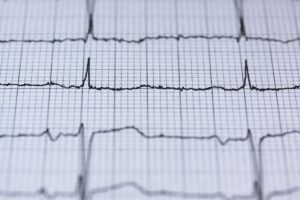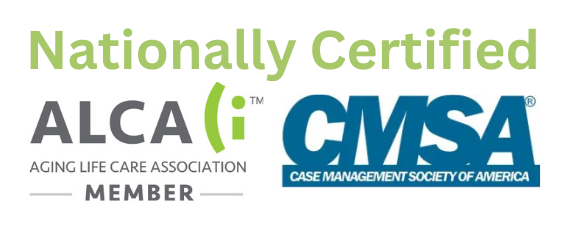These mistakes put your ticker in danger. It’s time to take aim against them

Smoking, overeating and drinking are among the seven deadly sins for your heart.
| It’s easy to spot a heart-health fanatic. She’s the one jogging down the side of the road, wearing tight pants and a heart monitor, then slipping into House of Kale for a superfood infusion. But you don’t need to be the neighborhood greyhound or a health food zealot to dramatically slash your risk of heart attack and stroke. You just need to stop making a few common blunders that elevate your risk of heart disease, says Clyde W. Yancy, chief of cardiology at the Feinberg School of Medicine at Northwestern University. The sooner you make a change, the faster you can reverse existing damage or reduce your risk.
That’s why AARP and the American Heart Association (AHA) are working together to give you simple fixes you can do today to start lowering your risk — dramatically. During February — aka American Heart Month — and all year round, avoid committing these blunders. You’ll set yourself, and your heart, on a healthy new path.
- You sneak a smoke
Heavy smokers know they should quit. So should occasional smokers. But you might say, “I only bum a smoke socially” or “Just once in a while, I have a cigar on the golf course” or “I switched to vaping. It’s so much cleaner and healthier.”
Wrong answers, one and all. “Cigarettes, cigars, vaping — all of them have the same degree of risk” for your heart, Yancy says. Nicotine has been shown to tighten coronary arteries; the effect is virtually immediate, he notes. “And there is no ‘small dose’ of nicotine,” he adds. “There is no threshold below which you’re ‘OK’ with smoking. That doesn’t exist.”
If you stop smoking right now and you don’t already have coronary artery disease, within two years you can reduce your heart attack risk to what it would have been if you had never smoked.
- You skip your walk
Muscle loss as you age is a serious problem, and your heart is the most important muscle of all, says sports medicine physician Jordan D. Metzl, author of The Exercise Cure.
The AHA recommends 150 minutes a week of exercise, or 30 minutes a day at least five days a week. A 2017 study showed that people with stable coronary heart disease who increased their habitual physical activity reduced their mortality rate. The greatest benefits were seen in the most sedentary people who finally started moving regularly.
“This can be so simple,” Metzl says. “Some people hate the word ‘exercise.’ That’s fine. Just move. Get up and get your heart pumping. It won’t care if you’re at the gym or not.” A large-scale study last year confirmed that any physical activity that gets you breathing hard, whether it’s for recreation or not, delivers the same benefits
Avoid weight creep to protect the health of your heart.
- You snarf an extra cookie
One of the biggest health issues, if you’re over 50, is weight creep — gaining a pound or two every year until you tip over into obesity. Science has found that meaningful weight loss comes mostly from better eating patterns, rather than from, say, more exercise.
“You shouldn’t expect to lose weight from exercise alone,” Metzl points out. “You can erase 500 calories burned from exercise in a few minutes of eating.” So the key is to eat the right foods. And that leads us to the next common blunder.
- You eat dinner out of a box
Foods that come in boxes and bags are more likely to make you fat and sick than foods you cook yourself. An animal study in the journal Natureshowed that emulsifiers in processed foods can trigger obesity and metabolic syndrome.
“An overall healthy eating pattern emphasizes a variety of fruits and vegetables, whole grains, low-fat dairy products, skinless poultry and fish, nuts and legumes, and nontropical vegetable oils,” says registered dietitian Rachel Johnson, a professor of nutrition at the University of Vermont in Burlington. Geriatric Care Managers are trained professionals who can devise a plan that incorporates healthy eating into your daily life.
- You shun your veggies
A lot of foods seem healthy but are low in nutritional value. Some culprits: granola bars and smoothies loaded with added sugars, Johnson notes.
Try to eat a serving of fruits and vegetables with every meal (yes, including breakfast!). Fry some thinly sliced brussels sprouts with your eggs, have a healthy salad or vegetable soup for lunch, and make sure there’s a side of broccoli with your salmon. For snacks, stir some fresh berries into a cup of plain yogurt (instead of eating that sugary “fruit” on the bottom), or scoop hummus with some carrots and celery, rather than processed chips. For natural blood pressure control, Johnson recommends potassium-rich foods such as sweet potatoes, spinach, beets, beans and yogurt.
- You lose your cool
Occasional stress isn’t necessarily a bad thing. But chronic stress can put your health at risk. One result: elevated blood pressure. Plus, according to a 2017 study of more than 2,500 people age 54 and older, chronic stress is associated with obesity.
Antistress techniques abound: Exercise, meditation, yoga, tai chi, enjoying nature and even creative hobbies can all help dial down your stress reaction. But one key to understanding stress is that, in the end, it’s how you react to it that makes all the difference. From that point of view, a big part of the remedy is just to ask, “Why am I so stressed about this?” An Aging Life Care Expert can guide you on this path with recommendations tailored to your needs and personal preferences.
- You overdrink
“There are substantial data that say that a modest amount of alcohol daily, or weekly, is reasonable and might be protective of your heart,” Yancy says. “But how do we measure protective benefits on an individual basis? And here’s the really hard part: Are people disciplined enough to keep it modest?”
“Modest” shakes out to one drink per day for women and two drinks for men. If you can do that, you’re probably OK. But if you can’t? The evidence suggests that no alcohol at all is better for your heart than too much.
Bonus Blunder: You watch Kimmel
There’s one thing that makes all of the previous seven blunders more likely: not going to sleep early enough. A study of nearly 440,000 adults over 40 found that those who went to bed later were more likely to smoke, remain sedentary and skip fruits and vegetables than those who got extra shut-eye by hitting the hay early. “Good sleep is the foundation of health,” Metzl says. “When you wake up feeling good, all the healthy choices become more attractive. You feel like eating well, you feel like working out. Sleep just makes everything easier.”







